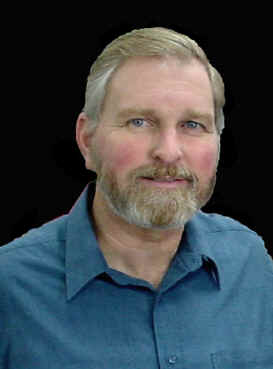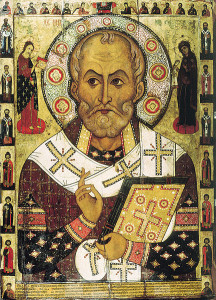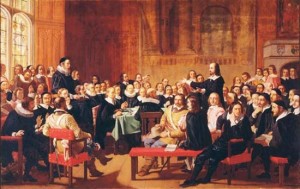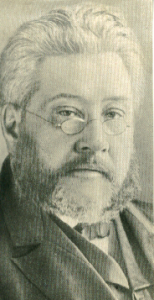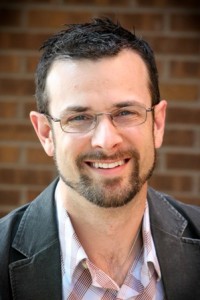China's One Child Policy and the Global Depopulation Bomb
By Nick Arnold For decades, China has been the 800 pound gorilla (er... panda) in the room. Its fast-growing economy and expanding influence as a regional power have garnered speculation about its future impact on the world stage.
One can hardly discuss China's future, however, without looking at its disastrous one-child policy. Since its induction in 1979, the policy has "prevented" the births of 400 million children through methods such as forced abortion, drawing criticism from both prolife and pro-abortion groups. Recently, China made a small but notable change to the policy by allowing some parents coming from single-child homes to have more children. It's not a complete fix by any means, but it does show that China may have noticed a rising threat the one-child policy causes to its long-term prosperity. Let's call it the depopulation bomb.
It's common knowledge that in order for a country to maintain a stable population, the birthrate needs to be over 2.0 per woman (unless the country has a massive influx of immigrants, which can provide a temporary but unpredictable source of relief). In many countries, however, the growth rate falls far short of that: In Europe, prominent countries such as Germany, Spain and Italy have birthrates below 1.5, and in Japan the problem is even worse, at a mere 1.26. As a result, it is creating an imbalance between young and old populations, an ever-increasing number of retirees are being supported by a shrinking pool of workers. If this decline continues, it will eventually reach the point where economic growth becomes impossible, with countries getting old before they can get rich. China's deliberate pursuit of a one-child policy has made it a poster child for this trend, with a median age expected to hit 49 by 2050.
Unfortunately for China, the problems of the one-child policy don't stop with age. Another problem rising for China is the preference many of its citizens have for male heirs. Given the opportunity for only one child, many families are opting to make sure it's a boy, and the effects are starting to show: Since 1980, the gap between men and women in the country has nearly doubled to over 50 million, and that's before the more evenly-distributed older generations age out. If the trend continues, China will not only have to deal with an expanding (and expensive) retiree population, it will also be facing an increasingly disgruntled generation of males. There may or may not be a historical precedent for this, but such a yawning gender gap can't be good for any country's long-term stability.
While it's easy to criticize China for its one-child policy, it's important to understand that the depopulation bomb is ticking, to a lesser or greater extent, worldwide. The entire "civilized" world has been pushing birth control for decades, and it's starting to catch up with us in the form of increasingly unstable and sexually disparate populations created by the global drive toward small families with fewer children.
Realizing the threat to their long-term prosperity, many nations are trying to put large families back in vogue. Their solutions range from restrictions on abortion in Russia, to truly desperate tactics in Japan like $150/month for each child and, I kid you not, baby robots. In the end, however, they are failing to understand the source of their problems: In each of these nations contraception and abortion are widely accepted by society (indeed, have often been tacitly supported by the governments), and the consequences of the culture so recently lauded are starting to surface.
Even at home in the U.S., where contraception and abortion are more controversial, the birthrate is teetering at a barely sustainable 2.1. By rights it should be lower, but our birthrate is inflated by a wave more pro-family immigrants from Latin America, which has already flattened after a 2007 peak. Even if high immigration levels had continued, however, we wouldn't be able to rely on immigration to solve our population woes forever. We're not immune to the gender gap, either: In studies like this one from the American Economic Journal, it's been found that at least 2000 girls went "missing" between 1991 and 2004, and that survey only covered Asian immigrant communities. The full numbers, especially with the prevalence of products that can predict the sex of your child such as Intelligender, are probably much worse. The world is beginning to see the fruits of decades of population control: in short, the plan backfired. Despite major backpedaling by governments around the globe, it's becoming apparent that the anti-family mentality promoted for so long is difficult to erase from the public mindset. China, like America and every other forward-thinking nation, should give major thought to repealing one-child policies and other procedures that discourage family building. The sooner governments embrace the vital role families play in economic growth and stability, the sooner we can start disarming the world's depopulation bomb.
Nick Arnold is a writer living in Washington, D.C.
One can hardly discuss China's future, however, without looking at its disastrous one-child policy. Since its induction in 1979, the policy has "prevented" the births of 400 million children through methods such as forced abortion, drawing criticism from both prolife and pro-abortion groups. Recently, China made a small but notable change to the policy by allowing some parents coming from single-child homes to have more children. It's not a complete fix by any means, but it does show that China may have noticed a rising threat the one-child policy causes to its long-term prosperity. Let's call it the depopulation bomb.
It's common knowledge that in order for a country to maintain a stable population, the birthrate needs to be over 2.0 per woman (unless the country has a massive influx of immigrants, which can provide a temporary but unpredictable source of relief). In many countries, however, the growth rate falls far short of that: In Europe, prominent countries such as Germany, Spain and Italy have birthrates below 1.5, and in Japan the problem is even worse, at a mere 1.26. As a result, it is creating an imbalance between young and old populations, an ever-increasing number of retirees are being supported by a shrinking pool of workers. If this decline continues, it will eventually reach the point where economic growth becomes impossible, with countries getting old before they can get rich. China's deliberate pursuit of a one-child policy has made it a poster child for this trend, with a median age expected to hit 49 by 2050.
Unfortunately for China, the problems of the one-child policy don't stop with age. Another problem rising for China is the preference many of its citizens have for male heirs. Given the opportunity for only one child, many families are opting to make sure it's a boy, and the effects are starting to show: Since 1980, the gap between men and women in the country has nearly doubled to over 50 million, and that's before the more evenly-distributed older generations age out. If the trend continues, China will not only have to deal with an expanding (and expensive) retiree population, it will also be facing an increasingly disgruntled generation of males. There may or may not be a historical precedent for this, but such a yawning gender gap can't be good for any country's long-term stability.
While it's easy to criticize China for its one-child policy, it's important to understand that the depopulation bomb is ticking, to a lesser or greater extent, worldwide. The entire "civilized" world has been pushing birth control for decades, and it's starting to catch up with us in the form of increasingly unstable and sexually disparate populations created by the global drive toward small families with fewer children.
Realizing the threat to their long-term prosperity, many nations are trying to put large families back in vogue. Their solutions range from restrictions on abortion in Russia, to truly desperate tactics in Japan like $150/month for each child and, I kid you not, baby robots. In the end, however, they are failing to understand the source of their problems: In each of these nations contraception and abortion are widely accepted by society (indeed, have often been tacitly supported by the governments), and the consequences of the culture so recently lauded are starting to surface.
Even at home in the U.S., where contraception and abortion are more controversial, the birthrate is teetering at a barely sustainable 2.1. By rights it should be lower, but our birthrate is inflated by a wave more pro-family immigrants from Latin America, which has already flattened after a 2007 peak. Even if high immigration levels had continued, however, we wouldn't be able to rely on immigration to solve our population woes forever. We're not immune to the gender gap, either: In studies like this one from the American Economic Journal, it's been found that at least 2000 girls went "missing" between 1991 and 2004, and that survey only covered Asian immigrant communities. The full numbers, especially with the prevalence of products that can predict the sex of your child such as Intelligender, are probably much worse. The world is beginning to see the fruits of decades of population control: in short, the plan backfired. Despite major backpedaling by governments around the globe, it's becoming apparent that the anti-family mentality promoted for so long is difficult to erase from the public mindset. China, like America and every other forward-thinking nation, should give major thought to repealing one-child policies and other procedures that discourage family building. The sooner governments embrace the vital role families play in economic growth and stability, the sooner we can start disarming the world's depopulation bomb.
Nick Arnold is a writer living in Washington, D.C.


